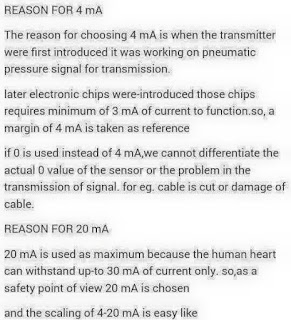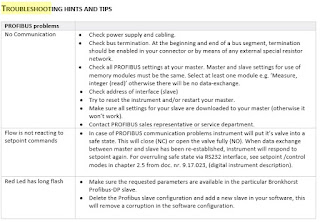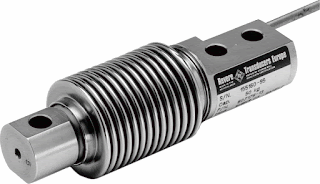Sunday, 30 August 2015
Saturday, 29 August 2015
Friday, 28 August 2015
Load Cell
This product is suitable for low capacity platform scales, packaging machines, hybrid scales and process weighing.
Fully welded construction and water block cable-entry ensure that this product can be used successfully in harsh environments found in the food, chemical and allied industries.
Features:
• Fully welded, stainless steel construction
• Hermetically sealed, IP66 and IP68
• Certified to OIML R-60, 4000d
• ATEX certified versions are available for use in potentially explosive atmospheres
• Current calibration output (SC version) ensures easy and accurate parallel connection of multiple load cells
Fully welded construction and water block cable-entry ensure that this product can be used successfully in harsh environments found in the food, chemical and allied industries.
Features:
• Fully welded, stainless steel construction
• Hermetically sealed, IP66 and IP68
• Certified to OIML R-60, 4000d
• ATEX certified versions are available for use in potentially explosive atmospheres
• Current calibration output (SC version) ensures easy and accurate parallel connection of multiple load cells
Thursday, 27 August 2015
Dead Weight Tester
- A dead weight tester apparatus uses known traceable weights to apply pressure to a fluid for checking the accuracy of readings from a pressure gauge
- A dead weight tester (DWT) is a calibration standard method that uses a piston cylinder on which a load is placed to make an equilibrium with an applied pressure underneath the piston.
- Typically deadweight testers are used in calibration laboratories to calibrate pressure transfer standards like electronic pressure measuring devices.
Wednesday, 26 August 2015
Pressure TX: Calibration (Siemens)
How to Calibrate
Hold M(mode) for 2 to 4 second
Hold M(mode) for 2 to 4 second
again click mode to next setting (Total mode 14)
friend ur need Help
Friend please if you visit my site then must follow , share and comment on post if u like my post Thanks
2 , 3 wire proximity sensor connection
A proximity sensor is a sensor able to detect the presence of nearby objects without any physical contact.Vibration measurements of rotating shafts in machinery.
- Roller Coaster
- Conveyor System
- Mobile Devices
- Touch Screen that come in close proximity to the face
capacitive sensing is a technology, based on capacitive Coupling, that takes human body Capacitance as input. Capacitive sensors detect anything that is conductive or has a dielectric different from that of air.
Inductive
An proximity(inductive) sensor is an electrinic Proximity sensor, which detects metallic objects without touching them
2, 3 and 4 wire RTD formula
Ohms to Degree Conversion
°C= Total Resistance-100*2.6°C= 109.625-100*2.6= 25.025°C
Degree convert into ohms
ohms= °C*.385 +100=
ohms= 25°C*.385+100=109.625ohms
linear variable differential transformer
The linear variable differential transformer (LVDT) (also called just a differential transformer,is a type of electrical transormer used for measuring linear displacement (position). A counterpart to this device that is used for measuring rotary displacement is called a rotary variable differential transformer (RVDT).
The linear variable differential transformer has three solenoid coils placed end-to-end around a tube. The center coil is the primary, and the two outer coils are the top and bottom secondaries. A cylindrical ferromagnetic core, attached to the object whose position is to be measured, slides along the axis of the tube. An A.C drives the primary and causes a voltage to be induced in each secondary proportional to the length of the core linking to the secondary.The frequency is usually in the range 1 to 10 khz.
The linear variable differential transformer has three solenoid coils placed end-to-end around a tube. The center coil is the primary, and the two outer coils are the top and bottom secondaries. A cylindrical ferromagnetic core, attached to the object whose position is to be measured, slides along the axis of the tube. An A.C drives the primary and causes a voltage to be induced in each secondary proportional to the length of the core linking to the secondary.The frequency is usually in the range 1 to 10 khz.
Tuesday, 25 August 2015
Why cascade control loop is more preferable in the critical process , and what is an advantage of this loop ?
cascade uses in a criticle & precise controlling,it gives a
predictive response where ever some possibility of d main
feed/source disturbance,in this case cascade responds very
quickly before any interruption in d process.
Monday, 24 August 2015
how to convert Mv to Degree for j and k type thermocouple see
- for J type Thermocouple= mv*18.85
Example:
mv= 34
fot k type then =24.5*34= 833.c temp:
Thanks
Sunday, 23 August 2015
How to calibrate ultra sonic level transmitter? See
Ultrasonic transducers are transducers that convert ultrasound waves to electrical signals or vice versa. Those that both transmit and receive may also be called ultrasound transceivers; many ultrasound sensors besides being sensors are indeed transceivers because they can bothsense and transmit.
SOV Coil
A solenoid is simply an electromagnet
This is the basic working principles behind a solenoid but instead of picking up metal filings, the magnetism generated is used to move an armature which can do work.
In most appliance solenoids, instead of having a stationary pin (nail in the illustration above) around which the coil of wire is wrapped, the coil is wrapped around a hollow tube. Through the center of this tube a metal armature is installed which is affected by the magnet field produced whenever power is supplied to the coil. This armature can be attached to levers to lock or open a door for example and powered via an electrical switch when needed to activate it.
This is the basic working principles behind a solenoid but instead of picking up metal filings, the magnetism generated is used to move an armature which can do work.
In most appliance solenoids, instead of having a stationary pin (nail in the illustration above) around which the coil of wire is wrapped, the coil is wrapped around a hollow tube. Through the center of this tube a metal armature is installed which is affected by the magnet field produced whenever power is supplied to the coil. This armature can be attached to levers to lock or open a door for example and powered via an electrical switch when needed to activate it.
Magnetic Flow meter
The third most common flowmeter (behind differential pressure and positive displacement flow meters) is the magnetic flow meter, also technically an electromagnetic flow meter or more commonly just called a mag meter. A magnetic field is applied to the metering tube, which results in a potential difference proportional to the flow velocity perpendicular to the flux lines. The physical principle at work is electromagnetic induction. The magnetic flow meter requires a conducting fluid, for example, water that contains ions, and an electrical insulating pipe surface, for example, a rubber-lined steel tube.
optocoupler
- In electronics, an opto-isolator, also called anoptocoupler, photocoupler, or optical isolator, is a component that transfers electrical signals between two isolated circuits by using light. Opto-isolators prevent high voltages from affecting the system receiving the signal.
Schenck Process system Coal Feeding used in Cement Industry
- The Multicor-K small grained/powdery Coal Feeding System is specially designed for economical.
- reliable and environmentally friendly powedry coal feeding for the firing of rotary kilns.
- Using highly accurate Coriolis technology,
- the Multicor-K system employs a matched Multicell unit,
- which features a large inlet section and integrated agitator, providing the optimum solution for stable,
- Equally material flow in the prebin.
- Because the system is designed to eliminate aeration,
- air pockets are minimized reducing the potential for pulsations or unstable conditions.
Schenck Process' superior coal dust feeding system offers economic kiln operation and high clinker quality based on stable temperatures and minimized excess air. The system is engineered to reduce fuel consumption, extend brick life and insure that SO2, NOx and CO do not exceed limit values.
Saturday, 1 August 2015
Subscribe to:
Comments (Atom)











































